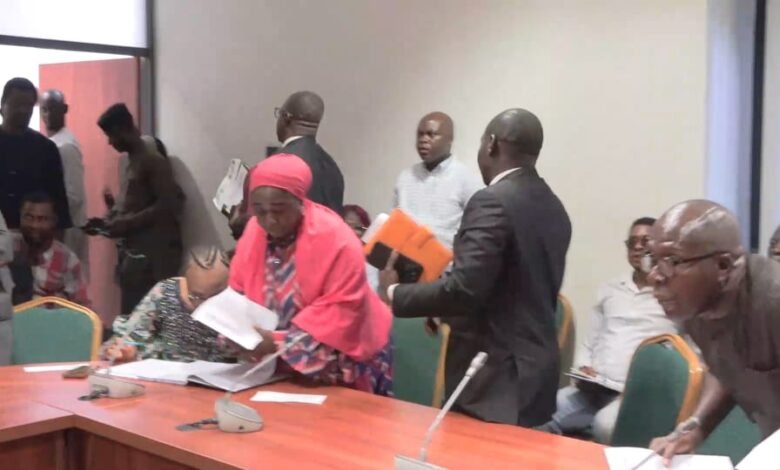JAMB Delegation Walks Out on House Committee Over Media Presence

A dramatic scene unfolded at the National Assembly on Wednesday when representatives of the Joint Admissions and Matriculation Board (JAMB) abruptly exited a session convened by the House of Representatives Committee on Basic Education and Examination Bodies.
The committee, led by Oboku Oforji (PDP, Bayelsa), had summoned JAMB Registrar Prof. Ishaq Oloyede to account for the agency’s 2023–2024 budget performance, remittances, and financial records.
Instead of appearing in person, Prof. Oloyede sent a delegate, Mufutau Bello, whose conduct quickly sparked controversy.
Tensions escalated when Mr Bello refused to proceed with his presentation unless journalists were removed from the room, citing the confidential nature of the documents. Lawmakers rejected the demand, affirming that legislative sessions are public and transparency is paramount.
In a startling move, Mr Bello accused the committee of attempting to embarrass JAMB and led his team out of the hearing. The committee chairman, visibly angered, ordered their arrest, but the delegation had already left the premises.
Lawmakers condemned the walkout as contempt of parliament and a threat to democratic accountability. Mr Oforji called the incident “unfortunate, disrespectful, and totally unacceptable,” noting that JAMB had ignored three prior invitations.
The committee issued a fresh summons to Prof. Oloyede, demanding his personal appearance by Tuesday, warning that failure to comply could trigger constitutional sanctions under Sections 88 and 89.
Other lawmakers echoed concerns:
- Awaji-Inombek Abiante (PDP, Rivers) decried the act as impunity, hinting at possible financial irregularities.
- Rodney Ambaiowei (PDP, Bayelsa) defended the presence of journalists, stressing that public funds demand public scrutiny.
- Marie Ebikake (PDP, Bayelsa) questioned the identity of the delegate, raising fears of impersonation.
The committee adjourned the session, vowing to uphold transparency and accountability in public institutions.
Every child has the right to education. Institutions like JAMB play a critical role in shaping access to higher education in Nigeria. Therefore, their financial transparency and accountability are not just administrative duties; they are moral obligations to the millions of children whose futures depend on fair and efficient educational systems.





